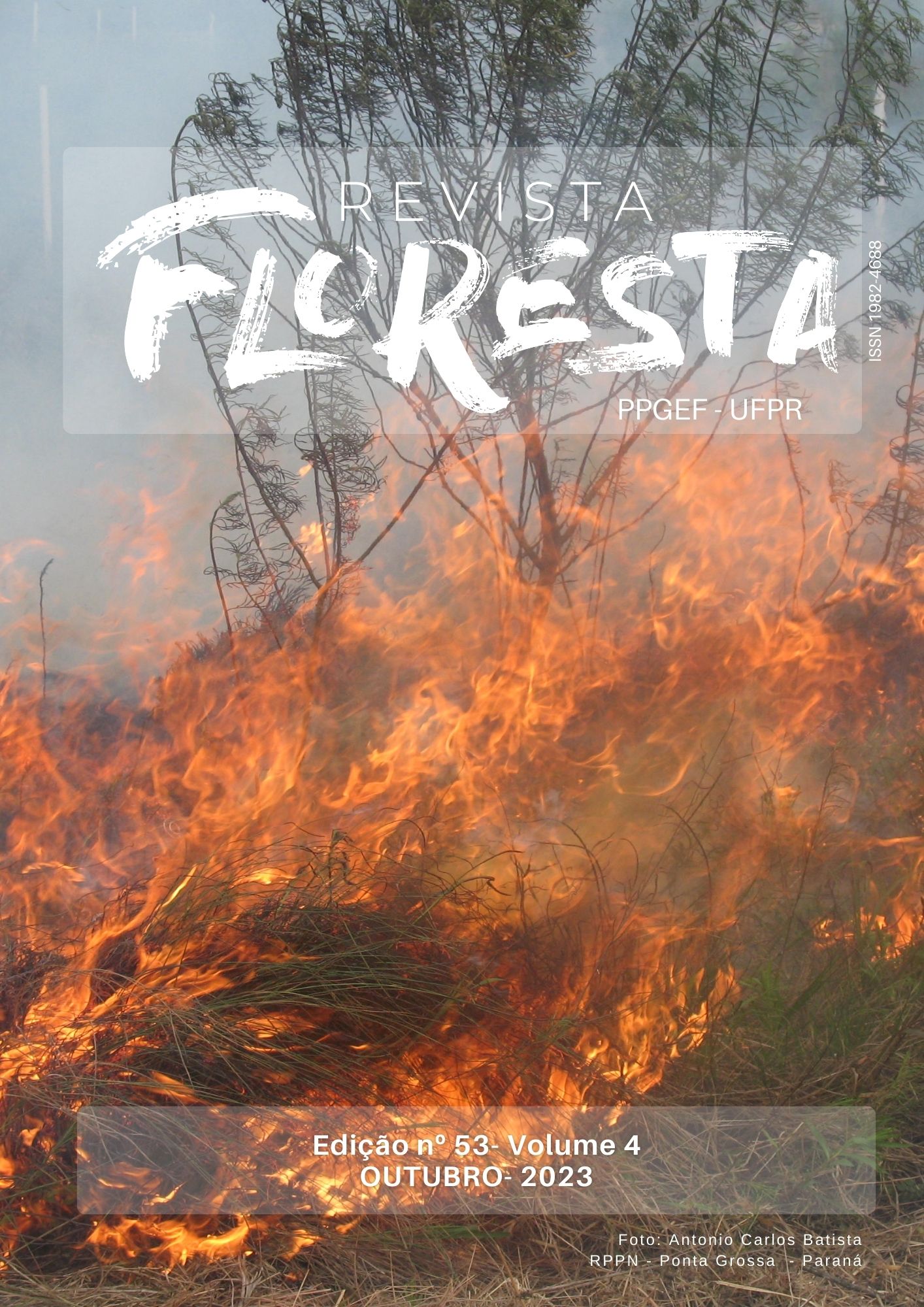CONTRIBUTION OF PROTECTED AREAS TO AVOIDED DEFORESTATION IN MATO GROSSO, BRAZIL
DOI:
https://doi.org/10.5380/rf.v53i4.87330Palavras-chave:
Protected areas, forest cover, carbon stock, soil erosion.Resumo
Protected Areas (PAs) are important spaces for the protection of biodiversity, capable of halting deforestation and collaborating in the intentions to reduce climate change. The objective of this work is to demonstrate the importance of Protected Areas in the state of Mato Grosso in the avoided deforestation and to estimate their contribution to the reduction of greenhouse gas emissions and soil erosion. The methodology was based on secondary data and the use of a GIS environment. As a result, it was found that in Mato Grosso there are 120 PAs between federal, state and municipal, they protect 6% of the territorial area of the state and most are located in the Amazon biome. Mato Grosso’s Forest cover in 2019 was 49.8 million hectares, with an estimated forest carbon stock of over 16.4 GtCO2. The PAs were created over the years in the state, but the greatest number occurred between 2000 and 2005 and together, in 2019 they were responsible for preventing the deforestation of more than 726,000 hectares of forest, 10 million tons of erosion and storing 281 million tons of carbon, which if traded on the credit market would have an estimated value of more than US$1.25 million. If the PAs did not exist and if deforestation were to be carried out, the cost of replacing this area would be more than US$2.73 billion. Therefore, the importance of PAs in environmental conservation and in the economy related to forest cover is notorious.
Downloads
Publicado
Como Citar
Edição
Seção
Licença
Direitos Autorais para artigos publicados nesta revista são do autor, com direitos de primeira publicação para a revista. Em virtude da aparecerem nesta revista de acesso público, os artigos são de uso gratuito, com atribuições próprias, em aplicações educacionais e não-comerciais.A revista, seguindo a recomendações do movimento Acesso Aberto, proporciona acesso publico a todo o seu conteudo, seguindo o principio de que tornar gratuito o acesso a pesquisas gera um maior intrcambio global de conhecimento.
Conteúdos do periódico licenciados sob uma CC BY-NC-SA 4.0



